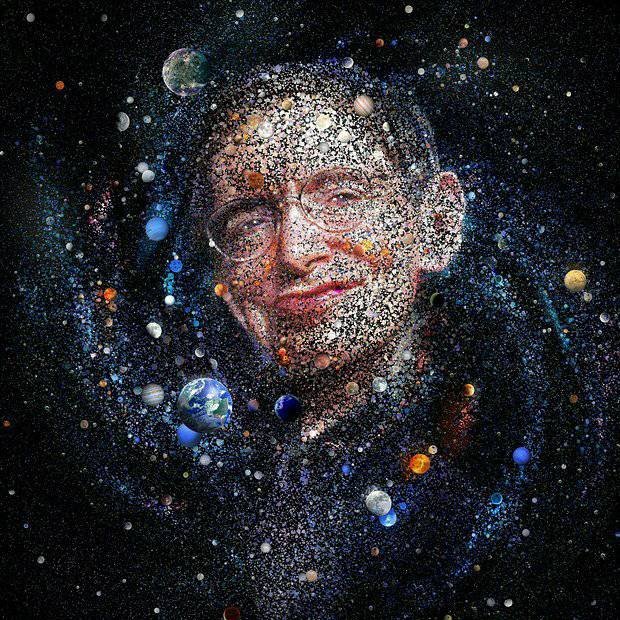A towering figure in modern cosmology, Stephen Hawking died today in Cambridge at the age of 76.
In 1963, at the age of 21, Hawking was diagnosed with motor neurone disease. Doctors expected him to live for just two more years but he lived for more than half a century. In his case, the disease progressed more slowly than usual. Living under the shadow of death ignited a fresh sense of purpose and he focused his research on a complete understanding of the universe, why it is as it is and why it exists at all.
In 1970, Stephen Hawking and Roger Penrose applied the mathematics of black holes to the universe and showed that a singularity, a region of infinite curvature in space-time, lay in our distant past: the point from which came the big bang. In 1974 Hawking drew on quantum theory to declare that black holes should emit heat and eventually pop out of existence. Hawking argued that if a black hole could evaporate, all the information that fell inside over its lifetime would be lost forever. It contradicted one of the most basic laws of quantum mechanics, and stirred up one of the most passionate debates in modern cosmology. At 37, he became the Lucasian professor of mathematics at Cambridge, arguably Britain’s most distinguished chair, and a post formerly held by Isaac Newton, Charles Babbage and Paul Dirac.
In 1980 he came up with the theory of cosmic inflation which holds that the fledgling universe went through a period of terrific expansion. In 1982, Hawking was among the first to show how quantum fluctuations – tiny variations in the distribution of matter – might give rise through inflation to the spread of galaxies in the universe.
In 1988, his book “A brief history of time” was published. A bestseller, it was translated into 40 languages and 10 million copies of the book were sold, though it was called the greatest unread book in history.
At the age of 23, in 1965, he married his college friend Jane Wilde. The marriage lasted for 26 years but broke down in 1991. His progressive condition, his demands on Jane, and his refusal to discuss his illness were the primary factors which proved destructive for the relationship. Four years later, he married his nurse Elaine. The marriage lasted 11 years Hawking has argued that for humanity to survive it must spread out into space, and has warned against the worst applications of artificial intelligence, including autonomous weapons.
In his 2010 book, Grand Design, he declared that God was not needed to set the universe going, and in an interview with the Guardian a year later, dismissed the comforts of religious belief.
“I regard the brain as a computer which will stop working when its components fail,” he said. “There is no heaven or afterlife for broken-down computers; that is a fairy story for people afraid of the dark.”

Hi! I am a robot. I just upvoted you! I found similar content that readers might be interested in:
https://www.theguardian.com/science/2018/mar/14/stephen-hawking-professor-dies-aged-76
Congratulations @imbhk! You have completed some achievement on Steemit and have been rewarded with new badge(s) :
Click on any badge to view your own Board of Honor on SteemitBoard.
For more information about SteemitBoard, click here
If you no longer want to receive notifications, reply to this comment with the word
STOPCongratulations @imbhk! You received a personal award!
You can view your badges on your Steem Board and compare to others on the Steem Ranking
Vote for @Steemitboard as a witness to get one more award and increased upvotes!